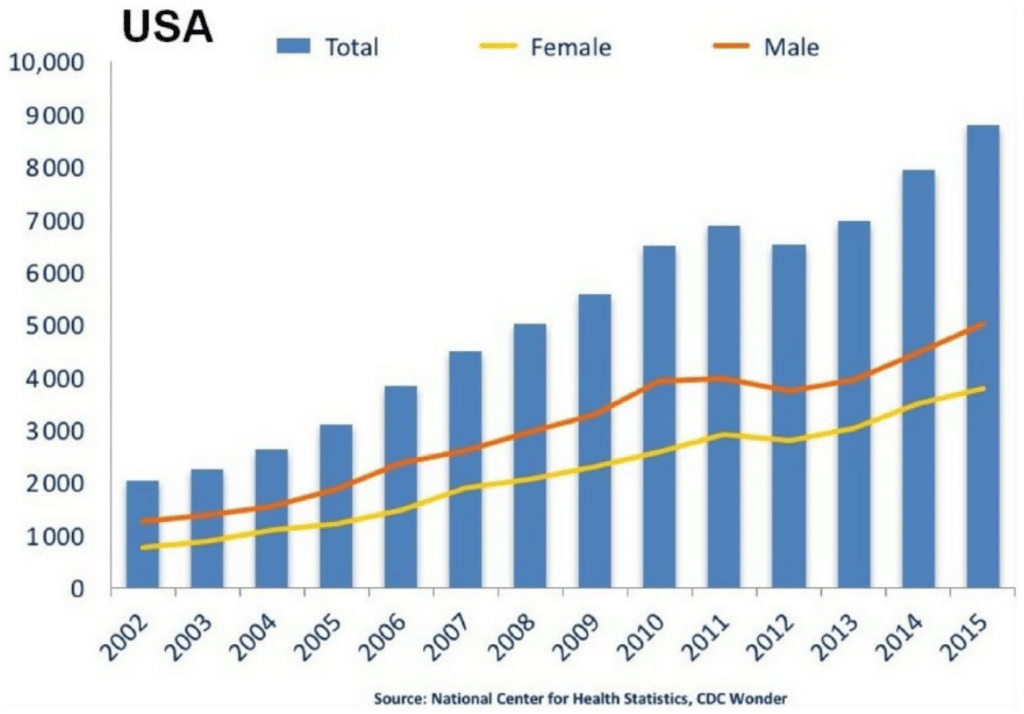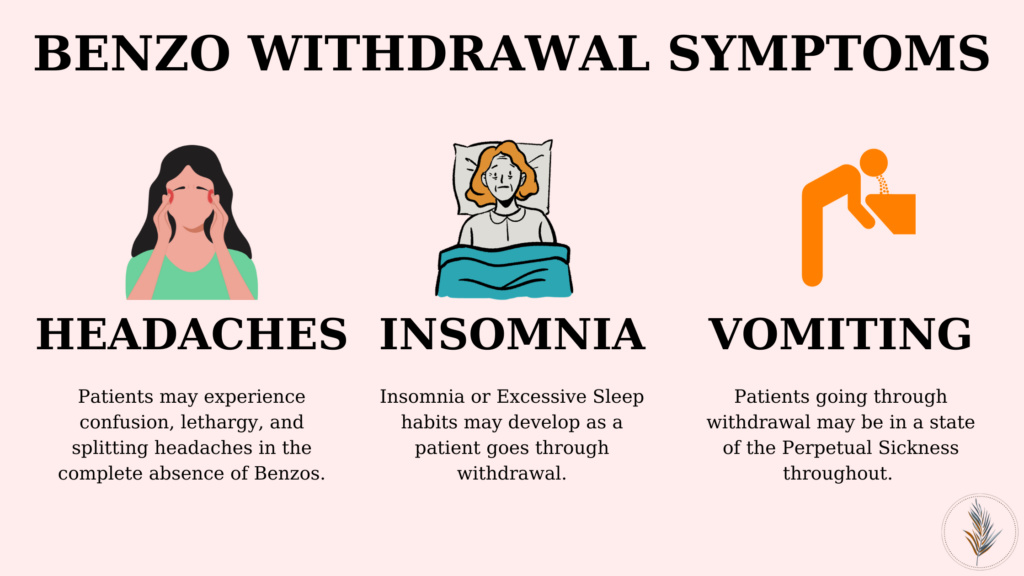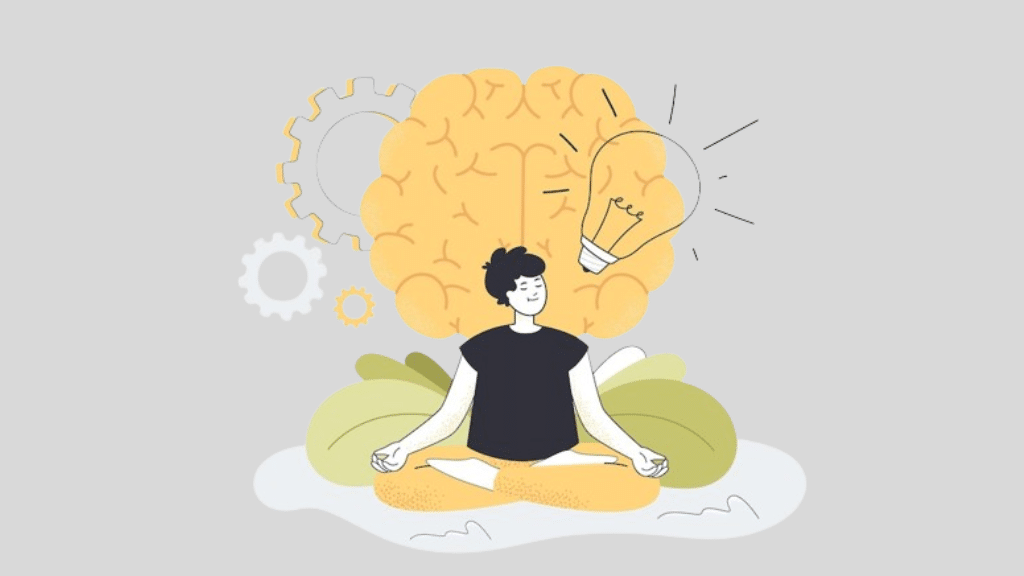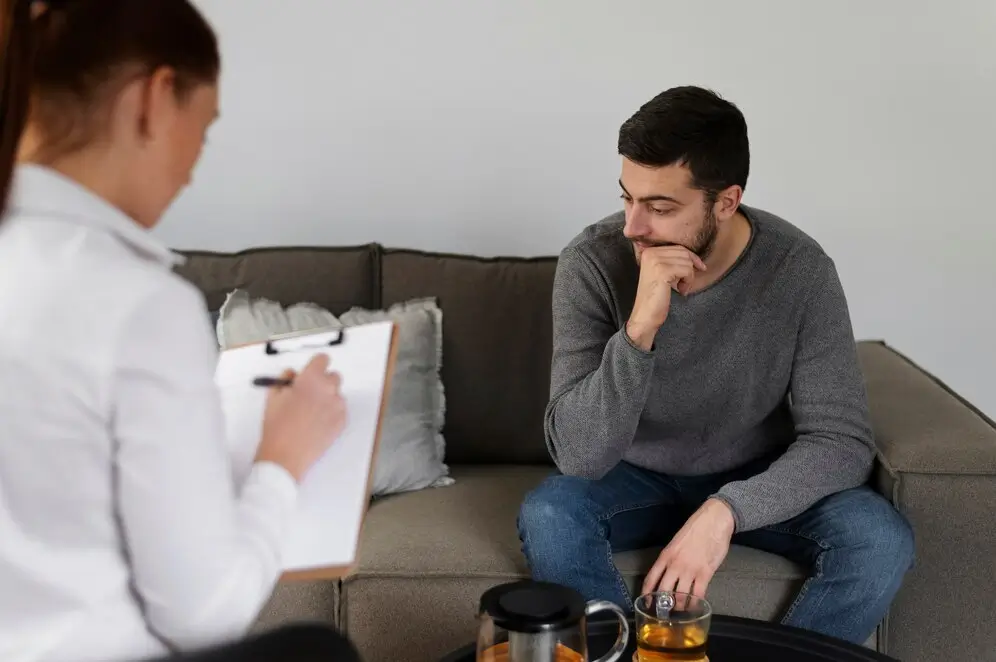Sometimes, the cure is worse than the disease. People take medicines to treat their illnesses. They become regular. But time passes, and they never realize when the medicine turns into a life-threatening addiction. But can you do brain healing after benzos yourself?
Benzodiazepines, Benzos for short, are one of those medicines used to treat anxiety and insomnia. But prolonged exposure drives people insane, leading to Benzo withdrawal help from hospitals. This article includes a detailed guide on why these substances are addictive and powerful ways you can manage Benzo withdrawal symptoms.
But let’s get into the basics.
Feeling Trapped in the Fog of Benzo Addiction?
Why are Benzos prescribed?
As aforementioned, Benzos are a class of pharmaceutically- made drugs used to treat insomnia and anxiety. Doctors prescribe Benzo drugs regularly until the anxiety and sleep issues subsides. There are other classes where these drugs become useful.
- Anxiety
- Sleep disorder
- Depression
- Seizures
Doctors prescribe the doses of Benzo drugs depending on the person, their level of disorder, and their tolerance. However, the real challenge arises with its usage, which often leads to addiction, hindering brain healing after benzos.
What is Benzo Withdrawal Syndrome?
Though Benzos are clinically useful, prolonged exposure to Benzos causes more harm than good. People who consume Benzos can develop a tolerance to these drugs. As their tolerance strengthens, they no longer feel any effects and may be tempted to consume high doses to achieve the same effect. Their consumption becomes higher progressively, leading to the signs of Benzodiazepine addiction and hangover.
Now, once they go “Cold turkey” on Benzos (a sudden withdrawal/ stop), there is a sudden disruption of bodily functions. When the person stops using Benzos, the body exhibits several uncomfortable symptoms because of this disruption. This is called Benzo withdrawal symptoms. This is why doctors are hesitant to prescribe these drugs due to the unknown consequences of prolonged exposure and also their exhaustive withdrawal symptoms.
Study shows that the number of deaths from Benzos is rising every year. Even though medical use is appreciated, one should consider the potential dangers when using these drugs.

Struggling with Benzo Withdrawal Syndrome?
Experience relief from Benzo Withdrawal Syndrome with our outpatient program. Our program offers proven methods to help you reclaim control and find lasting health. Say goodbye to the grip of benzodiazepines and embrace a fulfilling life.
Why are Benzos Addictive and Their Role in Brain Healing After Benzos?
The Benzodiazepine addiction is more similar to any other drug addiction as it lessens the activity of the Central Nervous System. The answer to the “Why are Benzos addictive?” has many answers.
One reason is that these drugs are tranquilizers and give a synthetic boost to face any anxiety and stress in life. This makes any person rely on an external medium to overcome distress. It programs the body to stop depending on its internal healing mechanism and depends psychologically on Benzos to achieve instant results.
Another reason is that Benzo consumption is progressive. This means over time, the regular dosage would barely cause any relief, and the person may consume high doses to experience the same relief effect they once used to experience. This naturally becomes an addiction.
People gradually develop addictions, but they are controllable. It takes the user’s awareness and willingness to self-control from more consumption. They can also leverage the Benzo withdrawal help centers to detox, overcome Benzodiazepine hangovers, and aid in brain healing after Benzo.
The Symptoms of Benzo Withdrawal
Stopping Benzo use can cause mild to severe withdrawal symptoms due to a person’s drug dependency.

Here are some of the mild symptoms:
- Disturbance in sleep
- Body shaking
- Irritability
- Anger issues
- Anxiety and panic attacks
- Depression
- Dry retching
- Nausea
- Sweating and palpitations
Here are some of the severe symptoms.
- Seizures
- Hallucinations
- Psychotic reactions
- Death
Post-acute withdrawal symptoms
Post-acute withdrawal symptoms persist even after 6 months of Benzo discontinuation. Symptoms of PAWS are
- Persistent anxiety
- Loss of sex drive
- Cognitive impairment
- Poor concentration
- Depression
The severity of withdrawal symptoms is dependent on the tolerance level of the person on Benzo. It can be fatal without appropriate Benzodiazepine withdrawal help. Even though the duration of the withdrawal symptoms is unclear, we have a rough estimate.
Duration of the withdrawal symptoms
Let’s quickly understand the benzo withdrawal timeline.
The first-hand signs of Benzos are visible just 6-8 days after discontinuation. Since Benzodiazepines are short-term sedatives and reduce anxiety quickly, Benzo hangovers can lead to rebound anxiety. This lasts for 1-4 days of Benzo discontinuation.
The second phase lasts 10- 14 days and includes numerous above-mentioned symptoms. There is a chance that this phase takes a toll on the physical and mental health and may seem draining. The third phase is predominantly the return of the anxiety and insomnia conditions and may require external Benzo withdrawal help.
Brain Treatment for Benzo Addiction and Brain Healing After Benzos
There is a significant rise in the number of users and abusers of Benzo. Research says that nearly 6% of Benzo users started just because they wanted to experiment to see what would happen, and 11.8% of people wanted to consume high doses to get high.
The consequences of Benzo addictions are nearly fatal. Therefore, the treatment of Benzo addiction is the need of the hour- not just for the patient but also for global health.
Benzo detox
A Benzo detox protocol professionally helps with a systematic treatment for Benzo addiction. The first treatment for Benzo addiction is cleaning the person’s body from Benzo. This process is known as detoxification, in short, detox. This method is crucial and should be taken with proper techniques through an expert physician to avoid potential danger.
Since cold turkey over Benzo can be lethal, you should always consider going to a professional Benzo withdrawal help. Medical detox holds a safe space for the patient to purge the harmful withdrawal symptoms safely while helping them to get back to their normal life.
Tapering down Benzo
Another part of the Benzo detox protocol includes tapering down Benzo. Tapering down is a method where doctors progressively reduce the dose of Benzodiazepines. If the person has consumed short-acting Benzo drugs such as Xanax, Estazolam, and Flurazepam, then the doctor will inject Diazepam (Valium) or Clonazepam (Klonopin).
These are long-acting Benzos and are less harmful. They have fewer withdrawal symptoms and produce the same effect as short-acting benzos. This ensures a safe and healthy Benzo detox. These medicines are injected and reduced in dose gradually until it’s completely safe to stop taking Benzos.
Benzo Detox medications
Reducing the dose isn’t the sole procedure in the Benzo detox protocol. What helps with Benzo withdrawals are certain medications used to relieve the symptoms during detox time. If the withdrawal symptoms are severe, the doctor might include Buspirone and Flumazenil medication along with tapering.
Buspirone takes 2-3 weeks before it can take action and thus is a slow process, particularly beneficial for brain healing after benzos. On the other hand, Flumazenil is a rapid-action medication, and one should use it with precautions due to its withdrawal side effects.
For addicted people to come back to sobriety, detox alone rarely causes visible effects. Therefore, patients can also choose the so-called “inpatient and outpatient rehabs” that provide a safe and comfortable ambiance for brain healing after benzos and to heal their addiction.
Management of Benzo withdrawal symptoms for Brain Healing after Benzos
What helps with Benzo withdrawal is their family’s unwavering support! Physical, mental, emotional, and psychological support from friends and family also forms a crucial part of the treatment.
- It would be best to remember never to force the person to stop Benzo immediately, which causes havoc to his/her health. Understand that Benzodiazepines have an extreme side effect called a “rebound effect” that becomes intolerable to people.
- Educate the person under the addiction about what to expect from the treatment. This helps reduce anxiety and panic attacks.
- Mandatorily take them to an expert professional and discuss how tapering down could save them from the intense purging of the Benzo hangover.
- It’s your responsibility to provide them with a serene and stress-free environment to detox.
- Use motivational interviewing techniques if the other person is not ready to treat the addiction.
- Ensure patients are not doctor-shopping to obtain more prescriptions.
- Use urine drug screening as a tool to engage the patient, not as a punitive measure.
- Encourage them to adopt a healthy lifestyle with a balanced diet, exercise, and adequate sleep. This is crucial for managing the withdrawal symptoms, as we will discuss in the ongoing sections.
- You can also support them psychologically by providing Cognitive-Behavioral Therapy (CBT) that helps them deal with emotional and psychological challenges.
Managing panic attacks during withdrawal for brain healing after benzos
Even though the tapering of Benzo is slow and gradual, there are chances of panic attacks depending on the depth of the addiction. To manage panic attacks from Benzodiazepine withdrawal, encourage the person to engage in deep breathing relaxation techniques. This reduces anxiety and grounds the person’s mind. A combination of self-care, love, and compassion boosts the healing in addition to the right medical treatment.
Managing insomnia during withdrawal
Sleep disorders are not new when withdrawing from Benzos. Encourage and educate the person that this is completely normal, particularly in the context of brain healing after benzos. This happens due to the cognitive impairment but will regain its original condition with treatment at the right time.
Avoid any stimulants such as caffeine and alcohol. As aforementioned, encouraging them to take up Cognitive-behavioral therapy can help reduce the load of the drug from the brain. Improving sleep during withdrawal can take time. Proper support might help.
Managing the physical discomfort
The person is prone to physical discomfort during withdrawal and may experience mild to severe symptoms. This includes headaches, muscle tension, tremors, digestive issues, and palpitations.
Stress-relieving techniques and a healthy lifestyle can easily handle any physical discomfort. Along with this, a positive attitude helps boost the self-confidence of healing. Encouraging them to be active in regular exercises, such as walking or gentle yoga, can help reduce physical tension and improve mood.
Managing seizures during withdrawal
Seizures are an extreme symptom of withdrawal and should be cared for meticulously. If the person is experiencing a seizure during the withdrawal, transfer them to the hospital and seek immediate medical treatment. Contact emergency services (866.939.6292) or go to the nearest emergency room.
Ensure a safe environment for them during withdrawal to minimize the risk of injury during seizures. Remove sharp objects, secure heavy items, and cushion the surroundings. After a seizure episode, follow up with your healthcare provider to assess your condition, adjust the withdrawal plan if needed, and address any ongoing concerns.
Your Journey to a Brighter Tomorrow
1. What is “Benzo Belly?”
Benzo Belly is a term used to describe the long-term effects of Benzo on the intestines. Benzo addiction has a significant effect on the intestines. Some of the symptoms of Benzo Belly include
- Swelling and bloating
- Excessive gas
- Diarrhea
- Vomiting and nausea
- Stomach pain
- Constipation
The level of symptoms ranges from mild to severe, depending on the person.
2. Does the cognitive function of the Benzo-addicted persons improve after withdrawal?
Study shows that long-term Benzo users show some improvement in cognitive impairment after the withdrawal. However, there might be permanent deficits in cognitive function, which might take longer than 6 months to recover fully.
3. What are the factors that influence the severity of Benzo withdrawal symptoms?
Each person may experience each symptom differently. It depends on factors such as:
- Dosage
- Misuse of prescription
- Duration of Benzo addiction
- Underlying physical/mental issue
- Consuming other drugs simultaneously
- Alcoholic
The person must never panic at any time and withdraw the use of Benzo suddenly.
Conclusion
You now know “Why are Benzos addictive?” and the life-threatening dangers of it. What helps with Benzo withdrawal is the support groups (physical, emotional, psychological) and appropriate treatment so that the person can feel safe. Therefore, you should consult a good healthcare professional as they provide regulatory treatment for Benzo addiction.
It is possible to eradicate the addiction and its dangerous withdrawal symptoms, facilitating brain healing after benzos. It took time to form the addiction, so it’s necessary to give the body time to heal.
We, at Calusa Recovery understand that every case is different hence we provide exceptional care customized to each client’s unique needs on day one. Treatment may need to be specialized since polydrug use is so common with this addiction. We provide an open opportunity to our clients where they can participate in dynamic and innovative group counseling 3 to 5 days per week, depending on their schedule. We offer tailored programs and treatment solutions that are personalized according to the patient’s immediate requirements.










